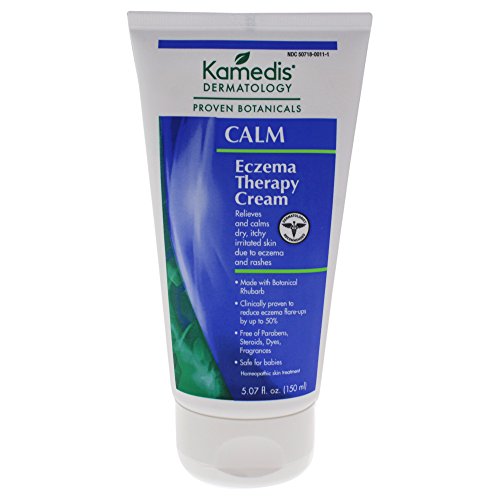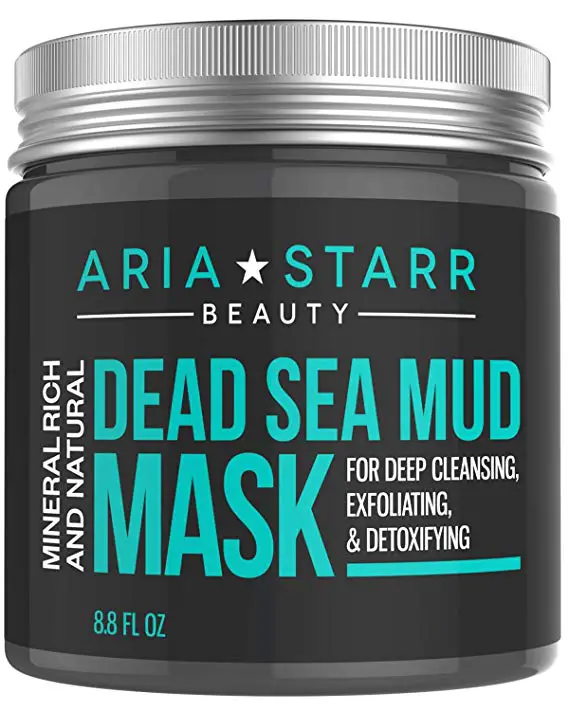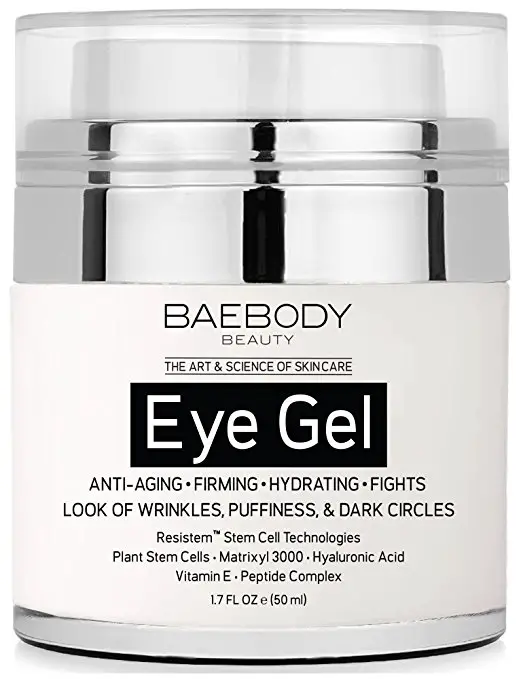What is eczema? And does cream for eczema really work?
Eczema is a skin condition where some areas of skin become intensely itchy, flaky, inflamed, red, rough and cracked. In some cases, blisters appear as well.
It is not a condition that is age-restrictive. Babies have been known to suffer from eczema though a good number outgrow them. However, a good number of people are still plagued with eczema even in adulthood.
Cream for eczema works but it is dependent on the severity and the cause of the condition in the first place.
Table of Contents
What Causes Eczema?
There are certain factors that cause and contribute to the appearance as well as the worsening of eczema. However, the underlining factor is dryness of skin. When the skin is dry, it is more prone to eczema breakout.
Nevertheless, dry skin does not occur in isolation. This means certain factors are responsible for the appearance of dry skin. We discuss a few of those factors below…
Damage to the Skin’s Barrier
The skin possesses a barrier on the topmost layer that protects it. It serves as a sort of firewall that prevents it from being susceptible to certain skin issues. When the barrier is damaged, the skin is exposed to allergens, irritants, bacteria and other pollutants that cause skin problems.
Additionally, when this happens, the skin loses its water retention ability. The result of this is itchy dry skin which stirs or encourages eczema to thrive.
Climatic and Weather Conditions
Climatic and weather conditions affect our skin more than we could imagine. Exposure to sunlight, cold temperatures, low humidity and wind can cause our skin to dry out.
Most of these conditions break down and distort the skin’s structure, causing it to function abnormally.
This abnormality in function eventually causes the skin to dry out since it is deprived of certain ingredients. This is what a cream for eczema most times replenishes the skin with.
Using Harsh Soaps
Certain soaps contain harsh and drying agents that can cause the skin to dry out over time. Ingredients such as sodium lauryl sulfate (SLS), triclosan, polypropylene in soaps should be avoided. They literally dry out the skin.
Staying too Long in Water
As good as water may be for our skin, it can also pose a threat to the wellness of our skin. Some skincare professionals might say it has to do with hot water alone.
However, we have discovered that cold water can also lead to skin dryness over time. This is true even though its negative effect might not be as fast as extended exposure to hot water.
Extended exposure to water (hot or cold) alters the normal structure of the skin. This is why you notice your skin (especially your hands) begins to squeeze when you stay too long in water.
Eventually, when the temperature of the skin is stabilized, the skin also tries to adjust to this new change. This seemingly harmless occurrence causes your skin to break down in structure and over time, the effects worsen.
How a Cream for Eczema Works
First, you must understand that proper moisturizing of your skin is completely essential. It is one of the most effective ways of controlling and getting rid of eczema.
This is why most creams for eczema make moisturizing their top function. A well moisturized skin (made possible by using a cream for eczema) protects the skin’s barrier.
Another way a cream for eczema works is to replenish the skin with certain essential ingredients that has been depleted. Lack of these ingredients in the skin causes it to dry out. So once these ingredients are replaced, the skin functions as it should and self-repairs itself.
Lastly, a cream for eczema strengthens the skin barrier. Ingredients in the cream act on the skin barrier giving it the support it needs to function properly. In most cases these ingredients are occlusives such as shea butter, beeswax, dimethicone and so on. They stay and form a barrier on the skin, thereby preventing allergens from penetrating the skin.
Factors to Consider When Choosing a Cream for Eczema
Severity of the Eczema
As much as we would like to put all cases of eczema in the same box, we know this isn’t possible. Some are more serious than others.
Therefore, when going to choose a cream for eczema, it is important you choose what will work for you. Even though recommendations from friends are good, take them with a pinch of salt.
If the case of eczema is mild, any good cream for eczema should get it done. However, when we get to certain serious cases, it is best you consult a dermatologist first. They will determine if you need a non-prescription or prescription cream for eczema.
In addition, they will help you in other ways to effectively solve your eczema woes.
Skin Type
When it comes to those with eczema, dry skin folks are usually the worst hit. This is not to say that other skin types cannot suffer eczema.
Nevertheless, due to the difference in our skin types, we recommend you do a skin patch test. Apply a small portion of the cream for eczema of your choice on a small area of affected skin.
Leave this on without wiping off for about 24 hours and observe. During or after this period of observation, if you experience itchiness, burning, redness or swelling, don’t buy that cream.
Skin Damage
In some cases, the skin has experienced some degree of damage. This could be in the form of breaking, cuts, infection or blisters.
It is therefore important that you know what ingredients are contained in your cream for eczema. Some ingredients can cause irritations especially when damaged skin is exposed to them.
Packaging
Another factor you should consider is the size and the type of the packaging. When you go to buy the cream, it is advisable you choose a tube container. You could also opt for one with a pump instead of a lid that opens easily.
This is important because the less contaminated our skin is, the better it is protected from eczema. Besides, frequent exposure of the cream to your fingers, air and light could reduce its efficacy.
Another factor to consider as regards the container is the size. Cream for eczema comes in different sizes and it is necessary you decide how big you want yours to be. Nevertheless, this isn’t a make-or-mar reason.
Ingredients that Worsen Your Eczema
This skin condition could cause the skin to become sensitive. Therefore, not all ingredients are good for you; there are lots which can cause the case to become worse.
In this guide we will divide these ingredients into two: natural and chemical.
Natural Ingredients that Worsen Eczema
Going natural might seem like the safe way to go. Yet some ingredients possess properties that are threats to sensitive skin. Let’s look at a few of them…
Balsam of Peru
Balsam of Peru has been used in so many skincare products especially moisturizers. Its moisturizing properties make it a good ingredient. However, it has been discovered that it causes skin allergies and these allergies are bad for eczema-ridden skin.
Essential Oils
Even though they bear the name essential, when it comes to treating eczema, they are not so essential. These oils evaporate at a fast rate when placed within normal room temperature. Due to their instability, they risk causing allergies to the skin at a high rate.
Lavender Oil
Lavender oil is a kind of essential oil in the sense that it evaporates rapidly. The fact that lavender oil experiences oxidation does not make it suitable for skin with eczema.
During oxidation, the molecules of this oil gets broken down and can be irritating. It begins to smell funny, look cloudy and gets more viscous in nature. All these can cause the skin to flare up.
Chemical Ingredients that Worsen Eczema
Fragrances
These are substances (either synthetic or natural) that are used in cosmetic products for the sole purpose of adding a scent. In other words, a fragrance makes your cream smell good.
But these fragrances can cause skin allergies and irritation for eczema-prone skin.
Always buy a cream for eczema labeled ‘fragrance-free’. Don’t choose a cream for eczema that is labeled ‘unscented’. Why is this important?
Even though a product is labeled fragrance-free, it might still have a fragrance ingredient in it. Such an ingredient acts as fragrance as well as serving in other areas. Due to its other function(s), such an ingredient is not regarded as just a fragrance.
However, unscented products contain fragrances that perform no other function in the cream. Masking agents are then used to prevent them from having a smell.
Alcohol
Alcohol is drying in nature. It saps the skin of naturally-occurring essential oils. When this happens, the skin barrier loses its ability to function at optimal level. It also irritates the skin.
Dyes
Putting any dye in any skincare product gives it a different look and color. These dyes, most times, can be somewhat harsh for sensitive skin including eczema-prone skin. For example, tartrazine or yellow 5 causes inflammation for those with eczema.
Check out these interesting skin care product reviews/articles:
What Can Cause Itchy Skin without a Rash? – In-depth Answer
How to Get Rid of Stretched Skin after Pregnancy – Extensive Answer
How to Exfoliate Sensitive Skin – Extensive Answer
What Lotion Is Good for Baby Dry Skin – Comprehensive Answer
How to Take Care of Face Skin in Winter – What You Need to Know
How Do You Get Lighter Skin – Everything You Need to Know
Helpful Ingredients Found in a Cream for Eczema
Oatmeal
Oatmeal contains amazing healing properties that could reduce and even get rid of eczema. It also relieves the skin of itchiness.
So, an oatmeal bath is definitely a thing. But if you can’t do this, we strongly recommend you pick a cream for eczema with oatmeal as a listed ingredient.
Ceramide-3
This ingredient is essential because skin with eczema lacks ceramides. Ceramide is a natural waxy substance with fats that form the key component of the skin barrier.
Skin with little ceramide loses moisture quickly and easily. Ceramide-3 counters this and restores the skin barrier to an optimal functioning level.
Ceramide-3 also assists in hydrating your skin. One major cause of eczema is dryness and ceramide-3 functions to combat that dryness.
Niacinamide (Vitamin B3)
Niacinamide, also known as Vitamin B3, is an active ingredient that makes your skin barrier stronger. It also heals your skin in the process.
Licochalcone
When your skin begins to produce surplus oil, then the possibility of an eczema breakout is very high. Licochalcone serves as a check to monitor and control this excess production of oil which in turn calms the skin.
Tamanu Oil
Tamanu oil has traced its roots to ancient medicine practiced in Polynesia. This ingredient due to its healing properties rids the skin of eczema.
Other helpful ingredients include: shea butter, lanolin, glycerin and hyaluronic acid.
General Tips for Using a Cream for Eczema
i. Ensure you apply your cream for eczema not later than 3 minutes after taking a shower. This will help you retain moisture throughout the day.
ii. There are prescription creams for eczema. Therefore it is important you apply yours as instructed.
iii. Be sure to moisturize your hands with the cream whenever you place your hands in water.
iv. It is advisable to use a clean tool to take your cream from its container instead of your hands. This is if it doesn’t come in a tube. Doing this will greatly reduce the risk of contamination.
v. Apply your cream for eczema by rubbing it using your palm in a downward motion. As much as possible, do not rub it in an up and down or circular motion.
Additional Ways You Could Treat Eczema
Take Proper Care of Your Skin
If you suffer from mild eczema, then proper skincare might be all you need. Most times, some of the skin conditions we face are generally due to neglect of proper care.
When you take care of your skin, conditions such as eczema are rare to come by.
Manage your Stress Level
Yes, stress is bad for you and your skin. Therefore cut down on those things that tend to stress you. Relax, take time out and keep positive vibes only.
Buy a Humidifier
A humidifier is an electrical device that keeps the air in a room humid. Since dry air is bad for your skin, using a humidifier would help a great deal.
See a Dermatologist
It is important to remember that not every eczema condition can be treated by the using a cream for eczema. So when you discover that your cream is not working, seeing a dermatologist is best for you.
Has this guide been helpful? Let us know in the comments section.










Pingback: What Is the Best Moisturizer for Sensitive Skin – Extensive Answer